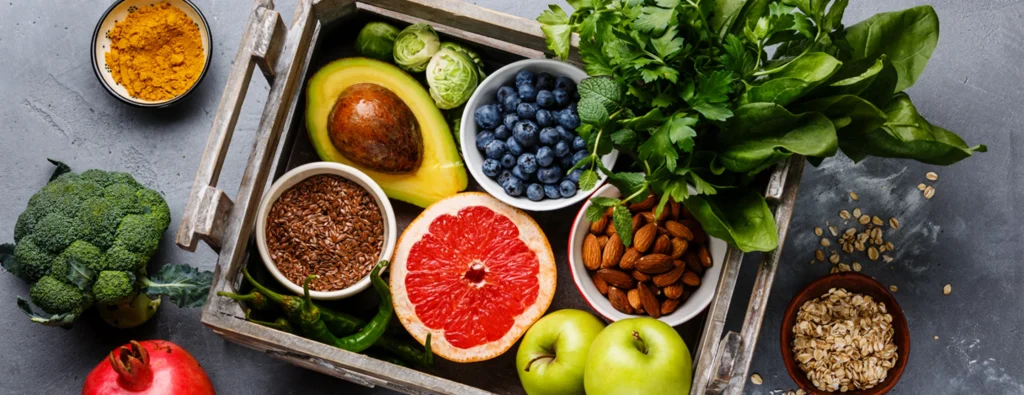
Health and fitness food including wide variety of nutrients.
Health and fitness food
These foods into your diet can support overall well-being, optimize performance.
1. Whole Grains:
- Whole grains like quinoa, brown rice, oats, barley, and whole wheat provide complex carbohydrates, fiber, vitamins, and minerals.
- They help in sustaining energy levels, improving digestion, and reducing the risk of chronic diseases like heart disease and type 2 diabetes.
2. Lean Protein Sources:
- Protein helps in feeling full and satisfied, supports weight management, and aids in recovery after workouts.
3. Fruits and Vegetables:
- Colorful fruits and vegetables are rich in vitamins, minerals, antioxidants, and fiber.
4. Healthy Fats:
- Sources of healthy fats include avocados, nuts, seeds, olive oil, and fatty fish like salmon.
- Healthy fats are important for brain function, hormone production, and the absorption of fat-soluble vitamins.
5. Dairy or Dairy Alternatives:
- Low-fat dairy products like yogurt and milk, or dairy alternatives like almond milk or soy milk, provide calcium, protein, and other essential nutrients.
6. Hydration:
- Proper hydration supports digestion, nutrient absorption, temperature regulation, and athletic performance.
7. Snacks:
- Healthy snack options include Greek yogurt with fruit, nut butter with whole-grain crackers or apple slices, raw vegetables with hummus, or a small handful of nuts.
- Balanced snacks help in controlling hunger, maintaining energy levels, and preventing overeating at mealtime.
8. Pre- and Post-Workout Nutrition:
- After a workout, focus on replenishing glycogen stores and supporting muscle recovery with a combination of carbohydrates and protein, like a smoothie with protein powder, fruits, and leafy greens.
9. Portion Control and Balance:
- Aim for balanced meals that include a mix of carbohydrates, protein, and healthy fats, and be mindful of portion sizes to avoid overeating.
10. Individualized Nutrition:
- It’s essential to personalize nutrition according to individual needs, preferences, and goals.
- Consulting with a registered dietitian or nutritionist can help in creating a tailored meal plan and making informed choices about food and nutrition.
Remember to prioritize variety, moderation, and enjoyment in your food choices for sustainable results.
